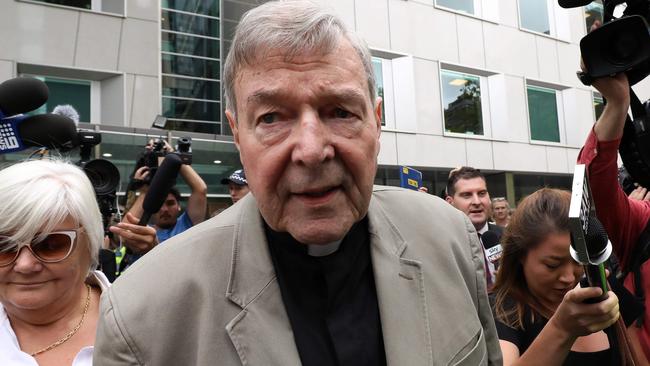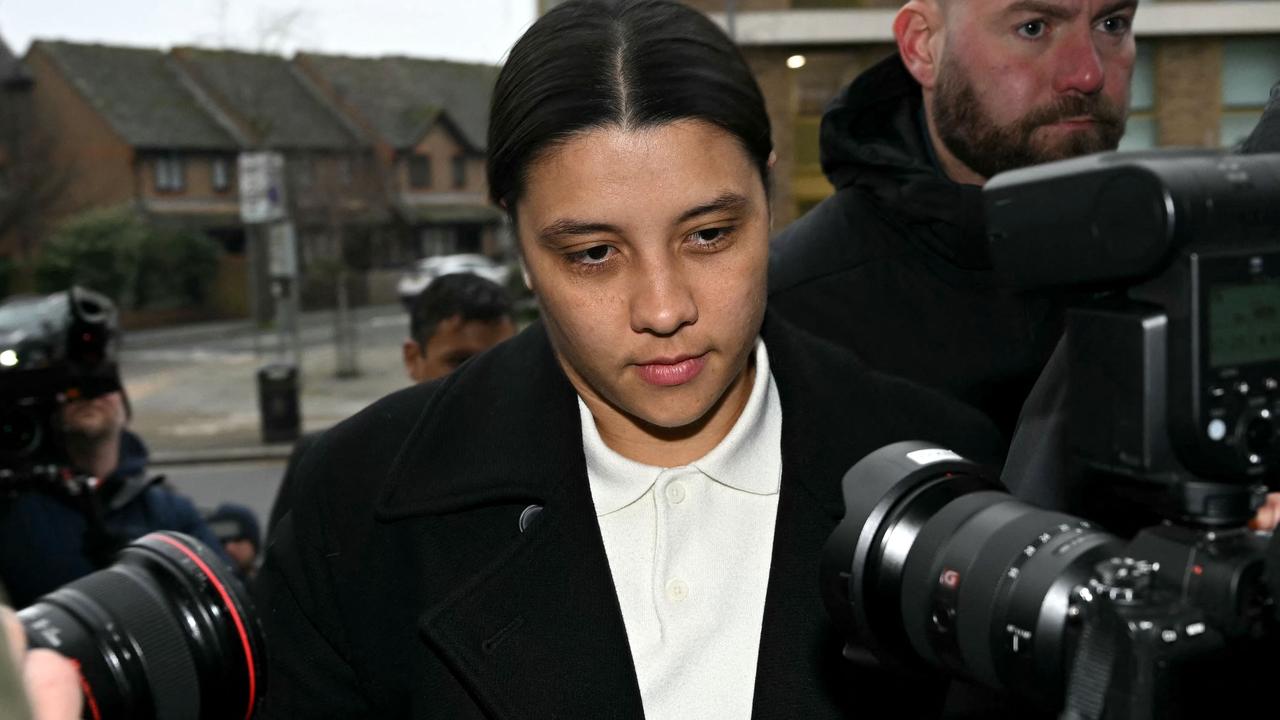George Pell: High Court weighs details of witness testimony
Cardinal Pell’s barristers argue that the wrong approach was taken in assessing the testimony of his victim.

The High Court is weighing up the importance of viewing the testimony of George Pell’s victim compared to just reading the transcript.
The court requested submissions on the issue this month and released the response from Pell’s legal team on Wednesday.
Pell’s barristers, Bret Walker SC and Ruth Shann, argue the majority opinion of the Victorian Court of Appeal last year took the wrong approach in assessing the impact of the demeanour of witnesses whose evidence was viewed.
The Court of Appeal sought submissions on this topic last year indicating it intended to view video recordings of the trial evidence of the victim and three other witnesses.
“The applicant submitted that … there was no necessity to watch any video recordings because the complaint of the applicant on appeal did not depend on the manner in which any witness gave evidence,” Pell’s counsel said in their High Court submissions.
“In particular, it was submitted that no matter how favourable a view was taken of the manner that the complainant gave evidence, it was not open to the jury, acting rationally, to conclude that the prosecution had eliminated all reasonable doubt due to the combined effect of the unchallenged evidence of other witnesses.”
The appellate court ended up conducting a view of St Patrick’s Cathedral, where the abuse took place, and video recordings of 12 witnesses.
Pell’s counsel said it was unnecessary for the appellate court to watch any recordings but it wouldn’t have been in any way determinative of the issues on appeal.
“This is because the issue for the court’s consideration remained whether it was sufficient for belief in the complainant to eliminate doubt otherwise raised and left by unchallenged exculpatory evidence unanswered by the evidence of the complainant,” they said in the response to the High Court.
Pell’s counsel argue the Court of Appeal majority, Chief judge Anne Ferguson and the president of the court Chris Maxwell, substantially based their conclusion on their favourable view of the victim’s manner despite saying they “bore in mind” caution from a previous High Court decision about too readily drawing conclusions about truthfulness and reliability solely or mainly from the appearance of witnesses.
“Many of the other matters considered by the majority to affect the complainant’s credibility were either viewed by the majority as not detracting from the favourable perception they had of his demeanour or are interpreted through the lens of having concluded he is credible and reliable because of his demeanour,” they said.
Dissenting Justice Mark Weinberg found the victim’s manner of giving evidence less compelling.
“Weinberg JA noted the risks of giving too much credence to matters such as demeanour when evaluating the evidence of a witness,” Pell’s legal team said.
“Weinberg JA stated that while demeanour must be ‘weighed in the scale’, it was to be considered in the light of the evidence as a whole.”
Pell’s counsel submitted Justice Weinberg adopted the “correct judicial method” compared to the majority.
The High Court hearing is listed for March 11 and 12.
Pell was convicted in December 2018 on one charge of sexual penetration with a child under 16 and four counts of indecent act with, or in the presence of, a child under 16, relating to two separate incidents at St Patrick’s Cathedral in Melbourne in 1996 and 1997.
The first incident related to choristers J and R who had left the procession and made their way to the priests’ sacristy, where Pell caught them drinking sacramental wine. Pell sexually abused the boys after mass in the sacristy.
The second incident involved Pell squeezing J’s genitals in a corridor. Prosecutors relied solely on evidence from J in the trial. The second choirboy, R, died in 2014 of a drug overdose.
Pell is serving a six-year sentence with a minimum of three years and eight months.


